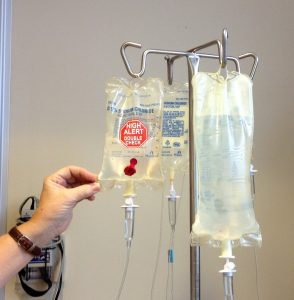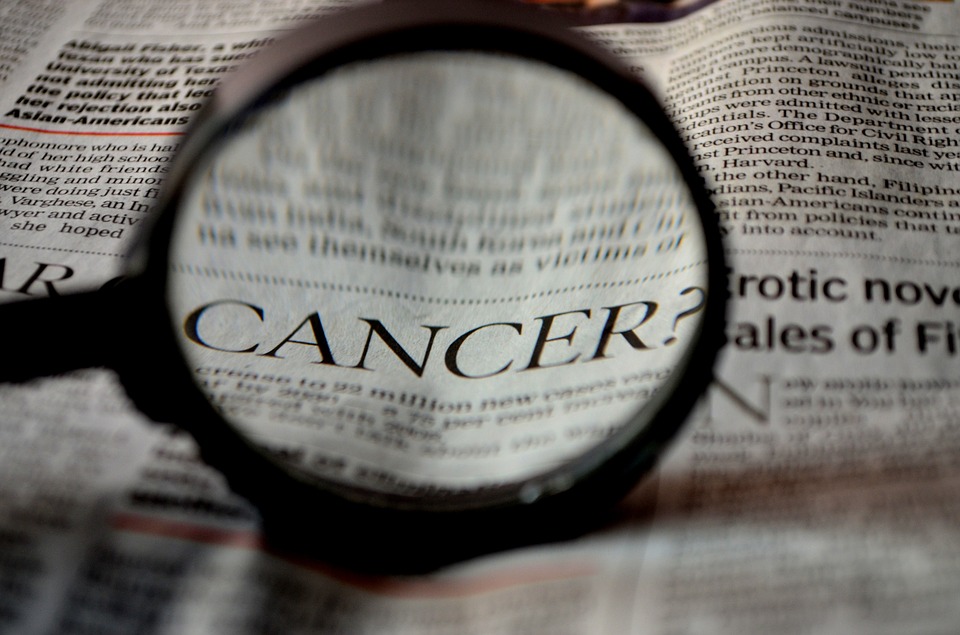India has a considerable percentage of cancer patients and there is a fair degree of awareness about the causes and treatment options in general. Well known are the frightening aspects of cancer such as the side effects of chemotherapy, high costs of treatment, and, some of the times, slow death. As is the case with most newsworthy stories, those with tragic ends are remembered longest and shared the widest. Sadly, stories cases which showed complete cures and disappearance of cancer hardly make any ripples.
The most common misconception about cancer is that it means immediate death. The two words are almost used synonymously and the person who is afflicted is discussed in hushed tones with somber expressions and pity. As someone who as been at the receiving end of such whisperings I can assure you is not encouraging. Concern and fear is natural but it is important not to make the mistake of sharing your premature mourning with the patient and his family.
There is no doubt that a cancer diagnosis is a daunting prospect. It is definitively one of the more difficult to cure diseases given the invasive nature of the treatments involved. It is, however, also very much controllable if detected and treated in time. Unfortunately, when it comes to perceptions about cancer, the most common reaction to news of an acquaintance being diagnosed with cancer is shock, followed by pity from expecting quick finality. Let me assure you it does not have to be like that at all. Cancer is not only curable but people can also live long meaningful lives after they have been declared cancer free.
To explain, I want to begin with Cancer 101. Normal healthy cells in the human body undergo division and replacement all the time we are alive. Sometimes an abnormal cell undergoes a change which causes it to multiply beyond control causing a tumour. Tumours are of two types: benign and malignant. The malignant variety of tumour is cancer which can spread fast and onto other areas of the body. If left unchecked or untreated it can cause serious illness, disability and death; the operative word being “if”. That means most types of cancer are treatable and ex-patients of cancer are able, with regular monitoring, to lead perfectly normal lives post treatment.
When I was diagnosed with esophageal cancer, I was frightened beyond comprehension. The first thought that came to my head was expeditious death. I began my cancer journey at that end of the bridge. Now I have successfully crossed the bridge and as I stand looking back with the wisdom I gathered during my experience as a cancer patient, I feel that I can describe myself as a stronger more positive person. I say with conviction that being frightened is good because fear is a motivator. It pushes you to conquer your obstacle. And that is exactly what cancer is, an obstacle. It is not an invincible demon. With the right weapons can you defeat cancer and live as a cancer winner.

Medication is a small part of the fight against cancer. While medicines and treatments are a vital aspect of the fight against cancer, the most important part of the cancer experience is the psychological state of the patient. The first thing that a patient has to deal with are his feelings; treatments come much later. He has to cope with his thoughts himself, with or without his close friends and family. Most times the afflicted become depressed with the prospect of painful treatment routines and is tempted to throw in the towel even before the fight has begun. This is the time when he or she need emotional support. They need someone to tell them not to give up so early in the battle. They need to talk about their plans after they get better. This keeps the cancer patient going. Keeping hope to be back to normal again is an essential step towards developing a strong will to become cancer free.
But it not possible to be unceasingly upbeat about your affliction. Its not normal and definitely not required to always put on a brave front . There are times when the chemotherapy and radiation can make the patient sick for days. It’s completely okay to feel like one cannot go on any more. Caregivers must allow for the suffering to feel bad about it all. It’s normal and needs to be expressed. Over enthusiastic instructions for being positive and upbeat at times like these has the opposite effect of an intended wish to give support.
Sometimes the very support needed is space and the freedom to express themselves even if it means giving in to the misery. If they are weeping, let them. Never ask them to wipe there tears and smile. They just do not want to. Understand that and be a quiet presence. That does not mean you walk out on the patient, just be around. They do need your quiet presence but leave the sermons outside.
When a cancer patient is in physical pain, what is needed is physical assistance in the form of doing basic chores. Ask clearly how you can offer help. Being matter of fact about recognising their inability to carry out certain functions can go a long way in establishing that silent camaraderie which will go a long way through the healing process.

Another important aspect of the cancer experience is one’s professional life. Work is an inherent part of an adult’s life. It is what ties our day to day experiences together. Try as we might, we cannot detach our professions from who we are as a whole. Why, then, should a cancer diagnosis suddenly derail our career train? This can again be attributed to the misguided public image of cancer. A cancer positive test result most commonly attracts unwarranted suggestions for the patient to either take a break, stop working for the time being or even resign. That is the polar opposite of what is required for treatment. It is understandable that people who suggest these actions think it will be easier for the patient from a practical standpoint, but again this line of thought comes from misguided perceptions about the nature of the disease and its treatment procedures. The uninterrupted routine of work and home gives a patient a respite from the nagging worry that a cancer diagnosis brings with it. Working is not only okay to continue to do but also has proven to help in the healing process. Let me explain.
Firstly, remember that cancer is not a contagious disease. A cancer patient is not going to go around passing the baton so to speak. So that path is closed off. Where the treatment regime is concerned it is correct to assume that there will be days when the patient is weak and unstable. Treatments like chemotherapy and radiation therapy are know to cause unpleasant side effects like nausea and hair loss. But advances in medical science and research have yielded modern drugs which are easier on the human body with higher tolerance for the drugs. Nausea and severe vomiting that used to last for days and serious tissue damage is very rare today. Most cancer patients are treated on an out-patient basis. They need only to take out a small number of hours from their routines for visits. A team of doctors and palliative care specialists are present to help the patient manage the weakening effects of the drugs at any and every stage of treatment.
Managers must stop viewing an employee with cancer as dead weight. Cancer patients can and do continue to perform as well as, if not better than, before the diagnosis. Try to arrive at a mutual agreement about alterations in work timings with reasonable adjustments in key responsibility areas. Being invited to carry on working is a huge confidence booster. This will also benefit the morale of the whole organisation and boost loyalty within the team. The patient should speak to his or colleagues and superiors openly, explaining the situation. It is can be hugely beneficial in building team spirit while giving you a space where you do not need to hide anything. Home and office can be a safe haven for a cancer fighter where they do not need to put on an act to permanent positivity.
Cancer is a disease that can happen to anyone. It is however not the end. There are no clear indicators of what causes cancer, but there are very certain cures available and their numbers are only growing. We are living in the age of phenomenal medical advancements. Our understanding of the disease is only getting clearer. It is important to remember that cancer, like most other diseases can be managed and removed from our bodies.

So don’t let the disease claim your mental well-being. Don’t call cancer-free people survivors. Surviving is easy. Win over your disease. Triumph is much sweeter. Be a Cancer Winner.
Ram Gupta, the author is a cancer winner. He defeated cancer some two years back. Professionally, a hotel management graduate. He is a certified Hotel Administrator from U.S. and MIH from U.K. He has over 40 years of sound experience in the Hospitality industry in India, Dubai, U.K, Europe and Japan. He has been associated with over two dozen luxury and boutique hotel projects and has launched two hotel chains in India. He is currently an independent hotel consultant and could be contacted at ramgupta@bcgglobal.com. Website: www.bcgglobal.com

